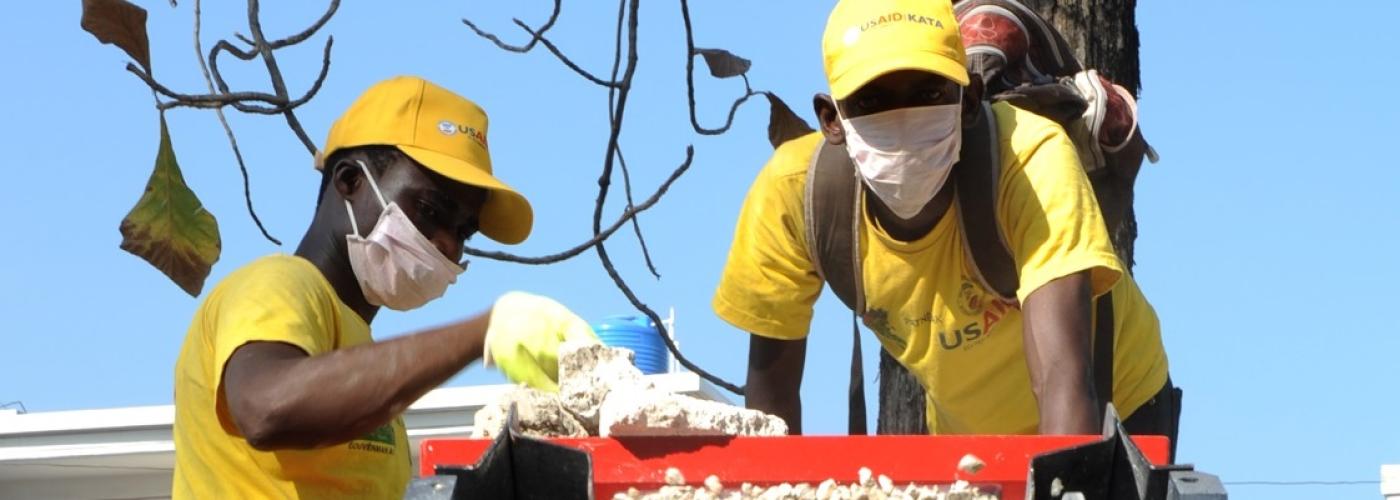Advancing the Green Economy Through Market-Based Approaches
Image

This blog was authored by Liz Keller, Senior Specialist, Economic Growth and Trade, Chemonics, and Greg Rulifson, Sustainability Advisor to BHA, ICF International.
Sustainable, broad-based, and inclusive economic growth in developing countries depends on sound management of the local environment, natural resources, and climate risks. – USAID Economic Growth Policy.
Unsustainable, high-emission economic development is an underlying driver of climate change. Therefore, [...] USAID will help our partner countries transition toward the resilient, net-zero economies they seek, and that create sustainable livelihoods and decent work, and are transparent, inclusive, and equitable in their design and operation. – USAID Climate Strategy 2022-2030
Climate change is a global crisis that threatens every aspect of economic growth. Since enterprises are drivers of economic growth, applying market-based approaches that use business models and market forces to address development and humanitarian challenges more sustainably and at scale is essential for building climate-resilient and sustainable economies. Market-based approaches will need strong collaboration across technical sectors and market actors, prioritizing local leadership and inclusivity to make a just transition to a green economy. Sustainability is important for conserving the environment on which communities depend, supporting the recovery of local economies, and preserving development gains and longer-term economic growth. Approaches addressing the nexus between economic growth and the environment support USAID’s strategic goals outlined in its Economic Growth Policy and Climate Strategy.
This November on Marketlinks, coinciding with the 27th UN Climate Change Conference in Egypt, Chemonics International, a USAID implementing partner, with the support of the USAID Bureau for Humanitarian Assistance (BHA), is hosting a theme month on advancing the green economy through market-based approaches. We are excited to share approaches to the green economy that span the range of emergency response, recovery, and development interventions that are contributing to USAID’s whole-of-agency climate response and environmental protection.
Throughout the month, we will engage with the Marketlinks community to share lessons and best practices on how donors and implementers can partner with local actors to design and implement approaches to a more resilient and greener economy. Examples will span from specific challenges, such as humanitarian packaging waste management, to broad shifts in climate-conscious consumerism. Looking at the transition through a systems lens, we will share resources and blogs that address questions, such as:
- How can donors and implementers work with the private sector to adopt greener production practices and with the public sector to enhance the enabling environment for such practices?
- What roles do market actors play in ensuring a green economy transition that is just, inclusive, and locally owned?
- How will transition to a green economy affect enterprises’ production costs and access to new markets?
- How does the increased global interest in green investment opportunities affect enterprises' access to finance?
- How can a greener economy improve resilience to future emergencies?
- What does a green economy transition mean for the next generation of jobs for youth?
- How can procurement be practically adapted to incorporate circular economy approaches?
We invite you to join the discussion by submitting a guest blog post or resource via your Marketlinks user account or by emailing info@marketlinks.org. At the end of the month, you are invited to join a webinar on Marketlinks on how development programming and humanitarian practitioners can make the business case to local private sector actors for adopting circular economy approaches. USAID programs will share market-based approaches for engaging the private sector in waste management, including lessons learned in supporting businesses to transition practices and services and specific ways that the circular economy can contribute to USAID’s localization priorities. Stay tuned for the registration link!
Resources
- USAID Climate Strategy
- Empowering the Green Recovery
- Market systems development and the environment: a strategic and operational guidance note
- Joint Initiative for Sustainable Humanitarian Assistance Packaging Waste Management
- Bureau for Humanitarian Assistance Circular Economy Private Sector Landscape Assessment

